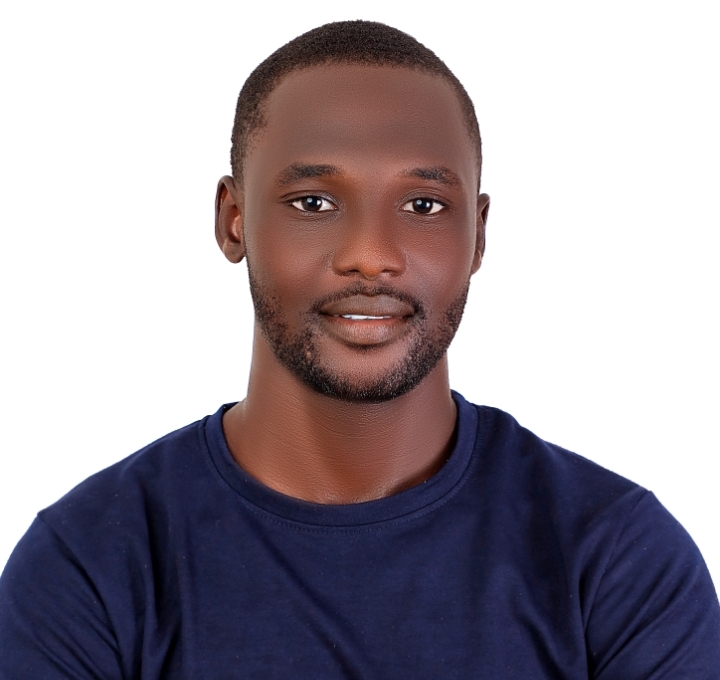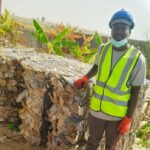In Northern Nigeria, where conversations about technology often revolve around connectivity and mobile access, a quiet but radical movement is unfolding, one that is rewriting what it means to be a digital innovator in post-conflict communities.
From the heart of Borno State, a region historically shaped by resilience and reconstruction, BitDevs Borno, Musa Haruna, is igniting a knowledge-driven revolution anchored in blockchain education and open-source collaboration.
In this edition of Techparley’s DRIVE100, where we spotlight Africa’s boldest builders, we explore how this grassroots startup is pioneering Bitcoin and blockchain literacy in one of Nigeria’s least digitally represented regions, not as a buzzword, but as a pathway to empowerment, skills, and inclusion.
From Curiosity to Catalyst: The Birth of BitDevs Borno
The story of BitDevs Borno began with a simple yet profound observation, that in most parts of Nigeria, especially the North, the idea of Bitcoin stops at speculation.
For many, it’s a trading tool or a risky online scheme. What’s often missing is access to the technical and developmental side of blockchain, the part that powers the world’s most secure digital infrastructure.
The founder, Musa Haruna, experienced this firsthand while exploring Bitcoin Core development. Seeing how inaccessible these skills were for beginners, especially in regions like Borno, he decided to act.
BitDevs Borno was thus born as an inclusive ecosystem, not a startup in the traditional sense, but a learning movement designed to take curious young people “from zero to open-source contributor.”
From small WhatsApp study circles, the initiative has grown into a structured learning network that uses Google Classroom for organized lessons and self-paced progression.
It has become a rallying point for young minds eager to understand not just how to use technology, but how to build it.
Building Knowledge, Breaking Barriers
Education sits at the core of BitDevs Borno’s philosophy, but not in the abstract, theoretical sense. The team has created a five-phase curriculum that blends coding, critical thinking, and blockchain engineering into a single practical journey.
Learners begin by mastering Python, one of the world’s most versatile programming languages, through projects like blogs and games that make learning interactive.
Next comes Git and GitHub, where they learn collaborative development, a crucial gateway to global open-source participation.
From there, students delve into the technical architecture of Bitcoin such as cryptography, peer-to-peer networking, and consensus mechanisms, the invisible backbone of decentralization.
The final phases push them to build mini-projects like wallets and transaction tools, preparing them for real-world contributions to repositories like Bitcoin Core.
Beyond these technical lessons, BitDevs Borno emphasizes peer mentorship and inclusivity. Members who started as complete beginners now guide newcomers, creating a virtuous cycle of shared knowledge that keeps the community self-sustaining.
“Our goal isn’t just to teach blockchain, it’s to help young people see themselves as part of a global innovation story,” Haruna told Techparley. “From Biu to Berlin, code speaks one language, and we’re helping our people learn to speak it fluently.”
Creating Opportunities Beyond Education
While education is the foundation, opportunity is the fuel that keeps BitDevs Borno alive.
The community isn’t merely training coders; it’s helping them navigate pathways into real-world ecosystems, from internships and grants to global hackathons and developer fellowships.
Through its self-paced model, members gain technical depth that aligns with opportunities such as Summer of Bitcoin, Btrust Builders, and open-source funding programs.
BitDevs also partners informally with professionals in the Nigerian tech diaspora who provide mentorship and code reviews.
But what makes their model truly unique is its local adaptability. With limited infrastructure, learners rely on smartphones and night-time data bundles.
The team provides learning resources in multiple formats; PDFs, videos, and text summaries, ensuring access isn’t gated by device type or bandwidth.
For participants, this has been life-changing. A member from Maiduguri shared how joining BitDevs transformed his career path:
“I used to think coding was for people in Lagos or abroad. But BitDevs showed me that if I have a phone and internet, I can be part of something global.”
That inclusiveness, the belief that innovation should be location-agnostic, is what sets BitDevs apart.
Meet the Team Driving BitDevs Borno
Behind BitDevs’ grassroots rise is a small, mission-driven team blending diverse expertise with a shared purpose, to democratize access to blockchain education in the North.
Musa Haruna – Founder and Lead Instructor:
A passionate Bitcoin Core learner and open-source advocate, Haruna brings firsthand experience from his journey into blockchain development. His practical insights shape the curriculum and mentor-driven culture of the community.
Ayuba Dauda – Technical Advisor:
A seasoned full-stack developer, Dauda ensures that BitDevs’ learning structure aligns with real-world software engineering standards. His mentorship helps learners understand not just what to code, but why it matters.
Enoch Idi Maina – Content Editor and Engagement Tester:
Enoch’s role is vital for inclusivity. As a non-developer, he reviews course materials to ensure they are clear, relatable, and beginner-friendly proof that technology education can be inclusive even for absolute newcomers.
Glory Ibrahim – Awareness and Community Engagement Lead:
A backend developer and vocal Bitcoin advocate, Glory drives awareness across social platforms, highlighting success stories and recruiting new learners from across Borno’s growing digital landscape.
Together, this team embodies the essence of community-first innovation, proof that grassroots leadership can scale when purpose meets persistence.
The Challenges of Scaling Vision in an Unforgiving Landscape
Operating in Borno comes with layers of complexity that few tech startups face. Limited infrastructure, persistent power cuts, and expensive internet plans make consistency a challenge.
Beyond logistics, cultural and educational gaps also play a role, convincing families and institutions that blockchain isn’t a scam or speculative gamble often takes months of outreach.
The team has found creative ways to navigate these barriers. They partner with Nigerian Army University, Biu, to use its premises for in-person meetups. They’re also negotiating access to Pangea Computer Training Institute to create a stable learning hub.
Funding remains another bottleneck. Without official sponsorship or grants, BitDevs Borno sustains its operations through community pooling and volunteer mentorship. Yet, it’s precisely this scarcity that fuels its ingenuity.
As Haruna notes, “We know what it means to start with nothing, that’s why our learners understand the value of every resource, every lesson, every opportunity.”
Vision 2026: A Decentralized Future for Northern Nigeria
BitDevs Borno’s long-term goal stretches beyond education, it’s about building an entire regional tech identity.
Over the next 12 months, they plan to launch a free three-month bootcamp, rewarding top learners with laptops and data support. The aim is to transition from purely virtual learning to a blended model that integrates hands-on collaboration.
In two to three years, the startup hopes to evolve into a full-fledged Bitcoin and Tech Institute, offering 6–12 month professional certificates in blockchain engineering, programming, and digital entrepreneurship.
Their vision is simple but transformative, simply to make Borno State a hub for Bitcoin and software innovation in northeastern Nigeria, linking its youth to the global digital workforce.
Upon successful realization, that vision could redefine what’s possible for a generation often written off as digitally disconnected.
Talking Points
BitDevs Borno stands as a compelling example of how impact-driven innovation can thrive outside the mainstream tech corridors. Its structure, open, inclusive, and mission-first, makes it one of the most authentic digital education models emerging from Nigeria’s grassroots.
However, the same strengths that make it admirable also pose challenges. Sustainability, long-term funding, and formal institutional backing are still missing. Without these, growth may remain limited to the enthusiasm of its founding team.
Still, BitDevs Borno’s rise proves that innovation doesn’t always begin in capital cities or accelerators. Sometimes, it begins in places rebuilding from the margins, with young people refusing to accept digital exclusion as destiny.
In many ways, BitDevs Borno isn’t just teaching blockchain. It’s teaching agency, persistence, and purpose, the very values driving Africa’s next wave of builders.
______________________
Bookmark Techparley.com for the most insightful technology news from the African continent.
Follow us on X/Twitter @Techparleynews, on Facebook at Techparley Africa, on LinkedIn at Techparley Africa, or on Instagram at Techparleynews






